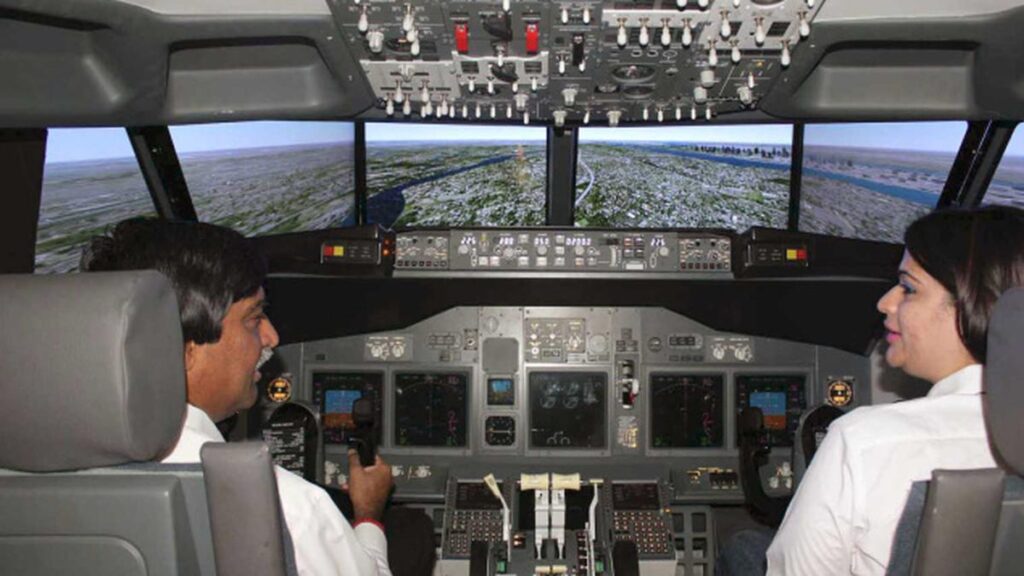970x125
The pilot’s body says that implementing a notice period risks turning aviation personnel into bonded labourers in a duopoly. Representational image.
970x125
A leading pilots’ union has urged the Directorate General of Civil Aviation (DGCA) to withdraw its proposal to the U.N. aviation safety body mandating a notice period for all aviation personnel, including cockpit crew, to deter poaching by foreign carriers, and instead focus on improving working conditions at home.
Also read: Why is the DGCA firm on new rest rules for pilots? | Explained
On August 1, the DGCA submitted a Working Paper before the International Civil Aviation Organisation (ICAO) arguing that migration of trained aviation personnel such as pilots, engineers, technicians, and cabin crew without “standardised notice periods” disrupted States’ ability to maintain safe and orderly flight operations. It urged a “model code of conduct” ensuring that such migration involves balancing staff mobility with States’ need for operational continuity and safety.
In their letter to the Minister for Civil Aviation Ram Mohan Naidu, the Airline Pilots’ Association (ALPA) India has argued that the move to restrict Indian professionals from seeking lawful employment overseas infringed upon their fundamental rights.
“The outflow of talent is not due to foreign “poaching” but domestic dissatisfaction — namely, poor working conditions, lack of contractual security, limited upward mobility, and the absence of standardised pay structures. These must be addressed domestically before attempting to impose external restrictions,” ALPA wrote in the letter dated August 8, adding that the focus must be to create an ecosystem that retains talent by choice rather than compulsion.
Bonded labourers
The pilot’s body says that implementing a notice period risks turning aviation personnel into bonded labourers in a duopoly.
“Indian pilots may be locked into employment with a single airline under unilateral and everchanging service conditions. This would deny them the basic freedom to seek better opportunities, improved working conditions, or fair compensation elsewhere,” the letter says. Such a measure would also increase mental stress among pilots, hampering aviation safety.
They also questioned the lack of safeguards for pilots — such as protection against loss of pay or gratuities. When airlines like Kingfisher, Jet Airways, and Go First shut down, employees were forced to serve notice periods and were then left jobless for extended periods.
Revised contracts
In 2017, the Delhi High Court put a stay on a DGCA rule mandating a minimum notice period of six months for first officers and one year for pilots-in-command after pilot bodies challenged it. Subsequently, airlines revised their contracts post pandemic inserting the same notice period requirement.
ALPA says the working paper before ICAO is an attempt by the government to “bypass” the legal process. The six- and 12-month notice periods mandated in India are the longest among major international airlines. Carriers like Singapore Airlines and Qatar Airways typically require only a three-month notice period.
The DGCA’s paper titled ‘Practices impacting orderly conduct of international civil aviation’ maintains that Indian airlines invest heavily in hiring and training pilots, engineers, technicians, AMEs, and cabin crew, especially in advancing new pilots to command roles. But foreign carriers often hire away this trained talent, forcing Indian airlines into a costly cycle of constant replacement recruitment, draining resources from growth, and effectively subsidising foreign competitors.
Coming at a time when Indian airlines have placed orders for 2,000 aircraft and are aiming to reach 30 crore domestic passengers by 2030, such challenges undermine the ‘Equality of Opportunity’ enshrined in the Chicago Convention, it says. Pilots also contend that a major chunk of the training cost before and after joining an airline is borne by them in addition to meeting strict bond requirements where they have to compulsorily work for an airline for a set period of time. In total, they end up paying between ₹90 lakh and ₹1.3 crore from their own pockets.
Published – August 12, 2025 11:33 am IST
970x125

